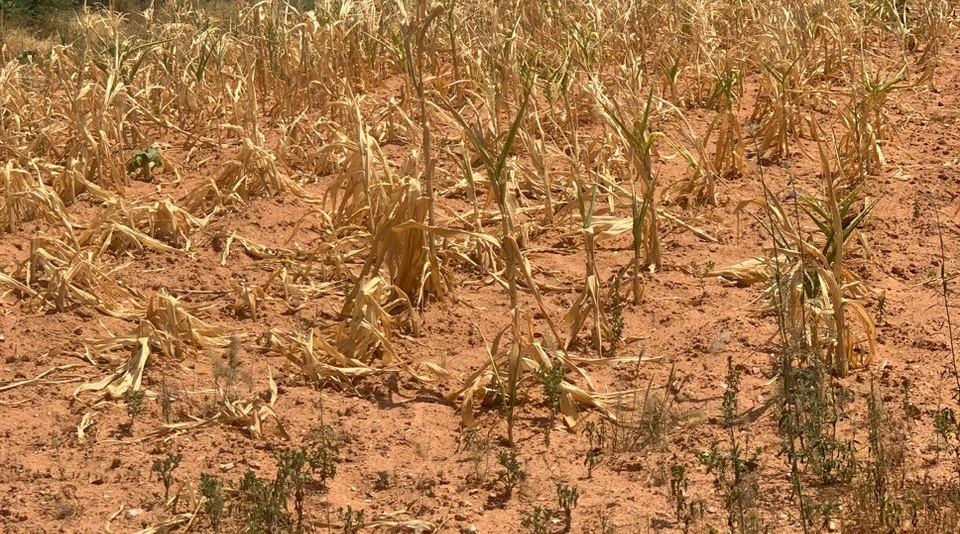By Roselilly Ushewokunze
In a long-awaited move reflecting the severity of the situation, Zimbabwe has declared a state of emergency regarding food security.
The announcement comes in response to the country’s deepening struggles with food shortages exacerbated by the El Niño effect that is sweeping throughout Southern Africa.
Zimbabwe is the third country to declare a state of emergency. Earlier this year, Zambia and Malawi declared their food crisis, attributing the disaster to climate change impacts and the lack of rains caused by the El Niño effect.
While the official figures of people suffering from food insecurity are slated at 2.7 million the figures could be much higher, especially considering the vulnerability of some demography including urban dwellers that include the unemployed, the youth and the elderly.
People residing in agro-ecological regions 3, 4, and 5 traditionally are affected by droughts and other natural disasters and these challenges have worsened due to climate change. A significant population is already faced with hunger and malnutrition due to ongoing economic challenges.
Although the declaration underscores the pressing need for immediate action to address the crisis, Zimbabwe has been in a perpetual state of food insecurity for years. The United States Agency for International Development (USAID) has for 7 years provided the country with 164 million dollars to avert food insecurity and malnutrition.
This signals the need to transform food systems holistically. Zimbabwe is party to the United Nations and the Sustainable Development Goals. The passive state of acute hunger suggests that Sustainable Development Goal targets may not be reached due to their interconnectedness. Food security is necessary to achieve zero hunger (Goal 2). Food production is a form of livelihood and is a means to end poverty (Goal 1). It also contributes to climate action through sustainable agriculture (Goal 13). Therefore, derailment in attaining food security will also affect other sustainable goals.
Enhancing systems thinking through holistic approaches is needed to address these complex and interdependent challenges. The fundamental connection between people and the planet, with sustainable agricultural food systems is at the heart of the 2030 Agenda for Sustainable Development as well as Africa’s Agenda 2063. They stress the urgent need to take concerted action and pursue policies directed at transformational change. Ending poverty and achieving zero hunger, whilst ensuring inclusive growth and sustainably managing the planet’s resources in the context of climate change and biodiversity loss will only be possible through holistic and integrated approaches.
Agriculture is a victim and contributor to the climate crisis; however, it can become part of the solution. Through better production, nutrition and policies, the agricultural sector can reduce its contribution to climate change by reducing its GHG emissions so that global warming levels are kept below 2 degrees. A human-centred approach that puts women and young people at the core of the narrative is an indispensable component towards climate justice, ending poverty and reducing hunger as outlined in Sustainable Development Goals 2,8, 13,14,15.
Although the El Nino challenge was announced in 2023, Zimbabwe should improve on disaster preparedness and response. Beyond forecasting, disaster response should include mitigatory measures such as resource mobilisation. While international aid is appreciated, the national budget should be reflective of the prioritisation of disaster response.
Zimbabwe’s policies should also be reflective of resilience building. There is need to hastily conclude and adopt the Disaster Risk Management Bill to ensure that our country’s policies are in sync with efforts to curb the effects of disasters. Policies on agroecology and seed sovereignty may also assist in food systems transformation.
The government is obligated to guarantee food security through various constitutional provisions. Although different actors contribute to food security, the government remains with the mandate of transparency and accountability in terms of food stock declaration. Furnishing citizens with correct and timely information increases multi-stakeholder interventions and increases citizen confidence. Underdeclaring information may weaken disaster mitigation efforts.
Roselilly is the Coordinator of Food Justice Network. She can be contacted on roccabovas@gmail.com

